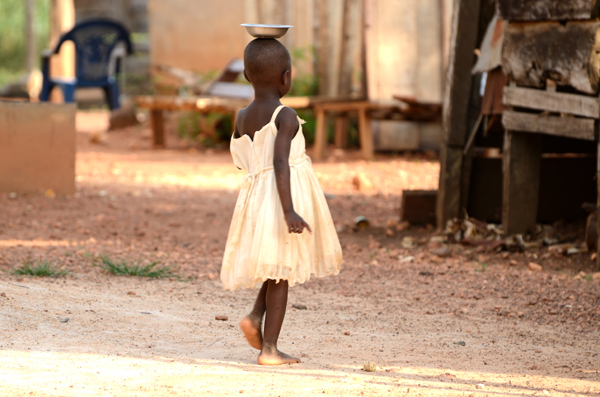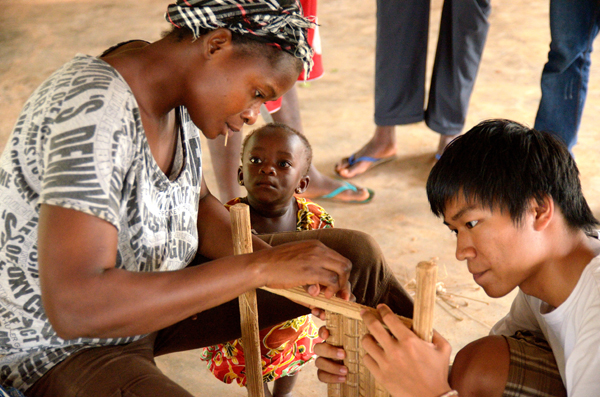The Roles of the Mother and the Child in Rural Ghana
Monday, March 3rd, 2014
Labor is clearly divided in rural communities in Ghana. Sweeping, cooking, washing clothes are some of the tasks that correspond to children and women. Once the boys reach a certain age, they grow above those tasks. Most men go farming all day: they grow cocoa to sell and bring corn, cassava, cocoyam and fruits home for their families.
Additionally, women—who generally have about 10 children—take care of the youngest children all the time. Instead of creating institutions that help them adapt motherhood into their social life or sharing child-related responsibilities with their husbands, Ghanaian mothers keep their infants and toddlers always close. They tie them on their backs with a piece of fabric and take them everywhere they go; they stay home if their children are sick, they breastfeed at church, in meetings, and while working. This may create a bond between the children and their mothers, which has the potential of strongly influencing the next generation, and thus should not be ignored in any kind of development work.
Children learn from observing their mothers, and imitate them. They see them as a role model and thus, this bond is of great relevance for a holistic approach to development. The desirability of ethical and economic consequences of this mother-child relationship may be debated: Should fathers share child-related responsibilities with mothers? Would it be preferable to have institutions that lower women’s burden but make the relation between mother’s and children more distant?
In many developing countries women grow into their roles from the moment they’re born and most of them don’t know anything different. Understandably, most of them claim to be happy with the distribution of labor since the hard work on the farms does not appeal to them, they are generally respected and seem to be taken into account as a member of their families. However, societal rules do not really allow for them to choose a different lifestyle. They lack freedom and the fact that their roles lack financial remuneration creates a structural dependence. While a judgment is hard and maybe unnecessary to make, considering how motherhood and gender roles can influence the outcome of a project, as well as how the project could reinforce or undermine existing social structures, would strengthen development outcomes.
Author/Photographer Biography
Andrés Lizcano Rodriguez is a recent SIPA graduate. He holds a masters degree from Columbia University in international affairs and a masters degree from Sciences Po in Paris, France. He recently relocated to Miami, Florida to work for Univision.




